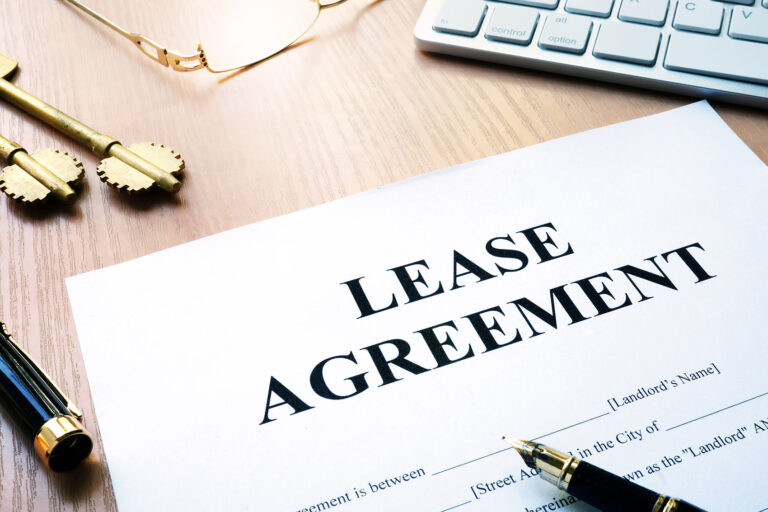Tips to Remember! Track your Concerns!
Application Process
Read and understand every word of the application before you sign it.
- Non-refundable fees for things such as background checks, application fees, administrative fees can reach up to $250 for many rentals.
- Get a copy of the lease at the application stage. You need time to analyze it.
- If you view documents online, be careful not to E-sign unintentionally, as that will bind you to the contract.
Schedule a lease review with Student Legal Services. Get Information about the lease language and the particular landlord BEFORE you sign the lease! You can find us in the LSC, room 274.
Application fee: How much is too much?
- Be wary of landlords who demand large amounts (>$250) at the application stage.
- The fine print of the application may allow them to keep your money if you decide not to follow through.
- Landlords need time to analyze your credit worthiness and you need time to analyze the lease and the property.
- Wait to give more than a $50 credit check fee until you’re ready to sign their lease.
Finding a Good Landlord and Decent Property
Safety
- Well lit, no overgrown bushes that make hiding places.
- Working locks on windows and doors.
- A way out in case of fire. (Pay attention to basement exits)
- Insist on seeing a furnace inspection.
- Working smoke and carbon monoxide detectors.
Habitability
- Inspect every corner and detail before you sign a lease.
- Signs of pests or rodent droppings?
- Turn on every appliance and faucet and flush toilets.
- Signs of past water damage or mold? Ask about sewage back-ups or any other past complaints.
Landlord Reputation
- Search the internet for “complaints against” the landlord. The bad ones have lots of strongly worded complaints.
- Search by individual name and company name of the landlord.
- How long has the landlord been renting out the home?
- Can you connect with current or previous tenants? (For privacy issues this may not be possible, but it is always good to check)
Over-Occupying
- Fort Collins permits only 3 unrelated tenants to share a property. The fine can be $1,000 per day of violation for each person involved.
- City investigation occurs upon a neighbor’s complaint. Large properties do exist that tempt renters to violate this occupancy limit.
- If you are considering over occupying, first talk to the lawyers at Student Legal Services (Room 274 of the Lory Student Center) to learn your risks.
Check out the online rental search tools and other resources at CSU’s Off-Campus Life!
Signing a Lease: Don’t Sign Until You Understand Every Word
Remember:
- E-signing commits you the same as a written signature. Do NOT e-sign until you have fully analyzed the lease, the landlord, and the property.
- If a co-signer is required, do NOT sign yourself until you are certain your co-signer will sign.
Clauses to Look For
- Joint liability. Most multiple tenant leases make you liable for roommates’ damages and their nonpayment of rent or utilities.
- Term of the lease. Breaking a lease is expensive. Try for a shorter lease if you know you won’t stay the entire term.
- Sublease and assignment (transfer of lease). Is the fee reasonable?
- Late fee. Is it reasonable? Get into the habit of paying rent early.
- Pets. Is there extra pet rent and deposit? Is there a stated fine for an unauthorized pet? Pets cause expensive damage. It may be wise to consider your personal schedule to assess if the responsibility of a pet is something you can take on.
- Repairs. The clause should require the landlord to pay for repairs unless the damage was caused by your (or a guest’s) misuse. Whether or not the damages are intentional or accidental, you may still be liable.
- Yard work. High charges can occur if the lease makes yard work your responsibility and you fail to do it. Who provides the tools?
- Renter’s insurance. Buy it! Cost is about $10 per month. It covers your belongings and negligence claims against you. Some things are excluded. Read the policy/ask the insurance agent!
- Landlord entry. Does the lease give you enough privacy and advance warning before the landlord can enter?
- Prohibited activities. Know what is prohibited by the lease. Violations can cause high charges and eviction. Landlords do not have to permit marijuana use or cultivation.
Landlord’s Verbal Promises
- Write them on the lease and get Landlord to initial.
- Verbal promises may be difficult to enforce when it comes to legal issues.
Negotiating Changes
- Choose your battles.
- All changes should, to the extent possible, be made prior to signing a lease. All changes subsequent to signing should be in writing and initials by all parties.
Signing On to an Existing Lease
- If it’s a joint liability lease, you take on previous damage and debt. Get legal advice on you to protect yourself BEFORE you sign on to an existing lease.
Beware! Signing a lease for an unfinished property is risky! Most leases do not give any protection if the building is not done by move in day.
Tips for Making Your Move-In/Move-Out Videos
- Imagine a court judge is your audience.
- Narrate your videos. Your move-out video should explain what was pre-existing, what is normal wear and tear you shouldn’t be charged for and be sure to point out the cleaning you did.
Moving In and Moving Out: Protect Your Security Deposit
Document the Condition at Move-In
- It is essential that you make a check-in sheet, whether required by the lease or not. Keep a copy! List ALL damages, no matter how small.
- Make a narrated video at move-in. Give a copy to your landlord and keep the original in a safe place.
Repairs
- Report all repair needs in writing throughout the lease and keep copies.
Cleaning
- Clean before you move out and take pictures.
- Make a narrated video going from room to room, describing the cleaning you did and details of the condition. Give a copy to the landlords before your landlord even begins to handle your security deposit to ward off false charges.
Disputing landlord charges: learn how to make a proper dispute here, and get help from Student Legal Services.
Rental Glossary
Security Deposit: An amount, often equal to one month’s rent, collected from the tenant and kept by the landlord to cover damages caused by the tenant or unpaid rent and utilities.
Joint and several liability among tenants: Obligation created in many leases that allows the landlord to come after one or all of the tenants for the entire liabilities, not just the tenant who actually caused the problem.
Sublease: A contract between a tenant and another person the tenant permits to live in the property (subtenant) with agreements about the subtenant paying rent and utilities. In most cases, subleasing is allowed only with written landlord approval. The original tenant (also known as a sublandlord) remains responsible to the landlord for all obligations of the lease and for any damage caused by the subtenant.
Assignment: A transfer of the rights and obligations of a lease from a tenant to a replacement tenant. Ideally, the assignment includes language releasing the departing tenant from further obligations of the lease.
Renter’s Insurance: Insurance purchased by a tenant for coverage of the tenant’s belongings and liability within a rental property.


